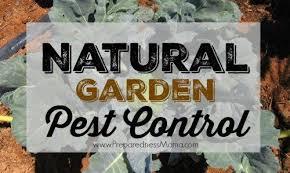How to Control Garden Pests Naturally (Without Harsh Chemicals!)

Controlling garden pests doesn’t have to be stressful or time-consuming. In fact, once you understand how to work with nature instead of against it, your garden will practically take care of itself.
In this post, you’ll discover how to control garden pests naturally, prevent infestations, and encourage beneficial insects to do the hard work for you — all without reaching for chemical sprays.
Bugs Are a Natural Part of Gardening
Let’s face it — bugs are part of the deal when you’re growing plants. But here’s the secret most new gardeners don’t realize: not all bugs are bad!
Bees, wasps, spiders, and ladybugs are actually your garden’s best friends. They pollinate your plants and feed on the destructive insects you don’t want. Once you get to know these beneficial bugs, you’ll start to see them as garden helpers rather than enemies.


Common Types of Garden Pests
Of course, there are some insects you’ll want to keep an eye on. Here are a few of the usual troublemakers:
- Caterpillars – like cabbage worms or tomato hornworms

- Beetles – Japanese beetles, flea beetles
- Mites – spider mites are the most common

- Worms – iris borers, squash vine borers
- Scale insects – mealybugs, plant scale
- Slugs and snails

- Sap-suckers – aphids, squash bugs, whiteflies
Remember: not every insect in these categories is harmful, so always identify them first before taking action.
🌸 Why Choose Organic Pest Control?
We’ve all had those days — you step into the garden and see your prized plants covered in holes or sticky residue. The temptation to grab a bottle of chemical pesticide is real.
But here’s why you shouldn’t: chemical pesticides kill everything — both good and bad bugs.
That means you’re wiping out bees, butterflies, and ladybugs along with aphids and beetles. Over time, this actually makes the pest problem worse because the good bugs (your natural defenders) take longer to return.
Using natural pest control methods keeps your garden’s ecosystem balanced and thriving for the long haul.

Steps to Prevent Garden Pest Infestations
1. Maintain a Healthy Garden
Healthy plants are naturally more resistant to pests. Feed your soil with compost, water wisely, and rotate your crops. The stronger your plants, the less appealing they’ll be to insects.
2. Observe and Monitor Regularly
Take a few minutes each week to stroll through your garden. Look under leaves, check stems, and notice changes like yellowing, drooping, or holes in leaves. Catching pests early makes them so much easier to manage.
3. Know Your Enemy
Before you remove or treat any insect, make sure you know what it is. Some caterpillars, for instance, turn into beautiful butterflies!
If you’re not sure, snap a photo or bring a sample to your local garden center. Proper identification saves time, money, and your beneficial bugs.
How to Control Garden Pests Naturally
You don’t need chemicals to win the pest battle. Try these natural garden pest control methods instead:
Physical Methods
- Handpick pests like caterpillars and beetles.

- Knock off aphids and mites with a strong blast of water.
- Use row covers to keep insects off young plants.

Biological Control
Encourage beneficial insects like ladybugs, lacewings, and predatory wasps by planting flowers such as marigolds, sunflowers, and zinnias.
Birds are another natural pest control ally — add birdbaths, feeders, and houses to attract them.

You can even purchase beneficial bugs like ladybugs or nematodes from garden centers to boost your natural defenses.

Organic Pest Sprays (Only as a Last Resort)
If pests still get out of hand, opt for organic pest control sprays such as:
- Neem oil
- Insecticidal soap
- Diatomaceous earth
- Homemade garlic or chili sprays
Always spot-treat the affected area rather than spraying your entire garden. Even natural products can harm beneficial insects if overused.
Plants That Naturally Repel Pests
Some plants can actually help keep pests away. Try mixing these into your garden beds:
- Herbs: Basil, mint, rosemary, and thyme repel aphids and mosquitoes.

- Alliums: Onions and garlic deter beetles and caterpillars.
- Flowers: Marigolds, nasturtiums, and calendula attract predatory insects.

These companion plants not only protect your garden but also add beauty and fragrance.
Final Thoughts
Controlling garden pests naturally is about balance, not total elimination. A few bugs are normal — even beneficial.
By following these natural pest control tips, you’ll build a stronger, more resilient garden that practically takes care of itself. With a little patience and observation, you’ll soon realize that nature truly knows best.


- News & Current Affairs
- Business & Economy
- Finance & Money
- Education & Learning
- Technology & Innovation
- Science & Environment
- Health & Wellness
- Food & Drink
- Home, Garden & Lifestyle
- Travel & Tourism
- Fashion & Beauty
- Art & Culture
- Entertainment & Media
- Sports & Recreation
- Personal Growth & Lifestyle
- Careers & Work
- Tutorials & How-To Guides
- Real Estate & Property
- Automotive
- Family & Relationships
- Environment & Sustainability
- Law & Legal Matters
- Gaming & Esports
- Religion & Spirituality
- Community & Local Voices
- Miscellaneous


